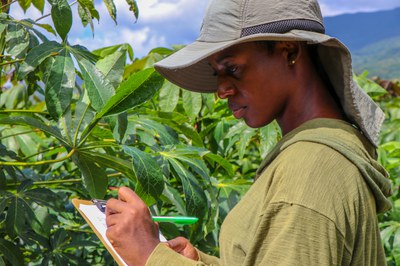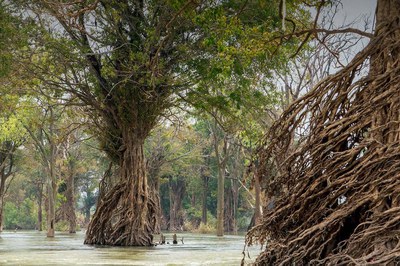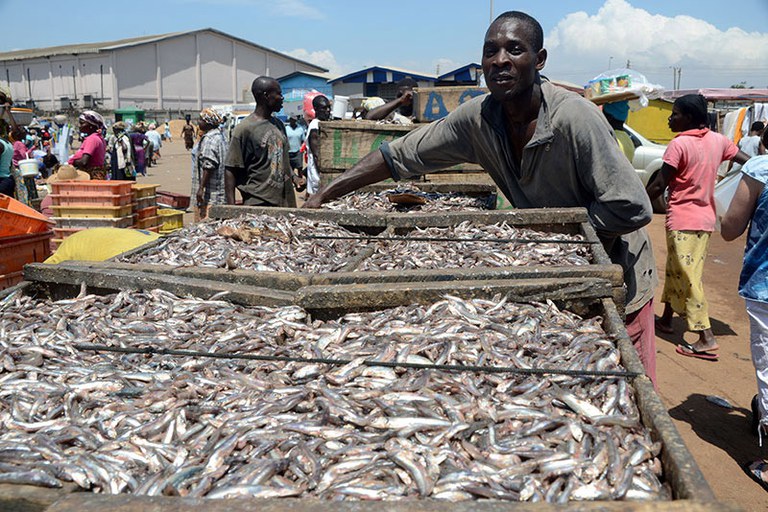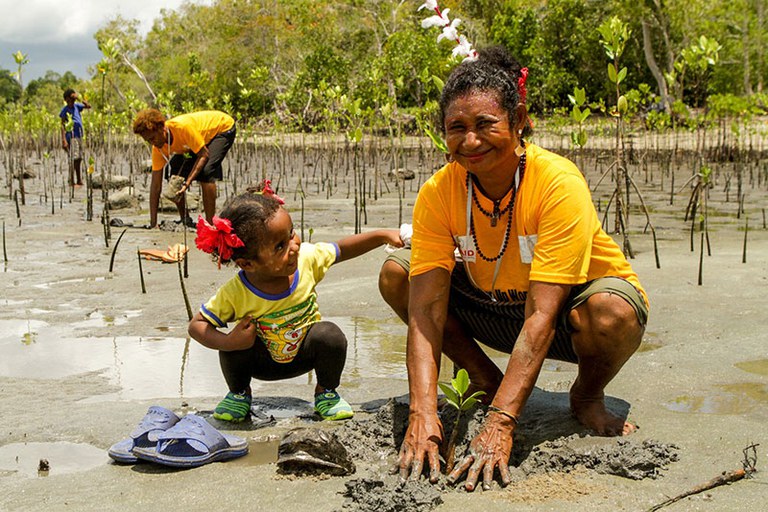USAID recognizes the global crisis of accelerated biodiversity loss and the ways in which climate change undermines the resilience of terrestrial and marine ecosystems, increasing stress on already scarce resources — further recognizing nature as critical to climate solutions. Through initiatives such as the Climate Strategy, the Agency aims to evaluate nature-based solutions as key tools to absorb carbon, reduce disaster risk, support livelihoods, and improve food and water security. Natural and managed ecosystems are also a main focus, through which, USAID pledges to support the conservation, restoration, or management of 100 million hectares with a climate change mitigation benefit by 2030.
Key Information

Ecosystem-based Adaptation (EbA)
EbA is a nature-based method for climate change adaptation that can reduce the vulnerability of societies and economies to climate stressors. This method provides flexible and cost-effective approaches that enhance resilience through the improved management and conservation of ecosystems.
Climate Risk Management (CRM)
CRM improves the effectiveness and sustainability of USAID’s efforts across sectors. USAID implements CRM by systematically assessing, addressing, and adaptively managing climate risk in new strategies, projects and activities, facilitating resilience to both current and future climate.
Integrating Biodiversity and Sustainable Landscapes in USAID Programming
Integrated development programming can increase the sustainability of interventions, amplify results, and reduce costs, and offers an opportunity to jointly address threats and drivers of biodiversity, forest loss, and land degradation.Biodiversity and the USAID Climate Strategy
The USAID Climate Strategy recognizes the concurrent global crisis of accelerated biodiversity loss and the ways in which climate change undermines the resilience of terrestrial and marine ecosystems, increasing stress on already scarce resources.









